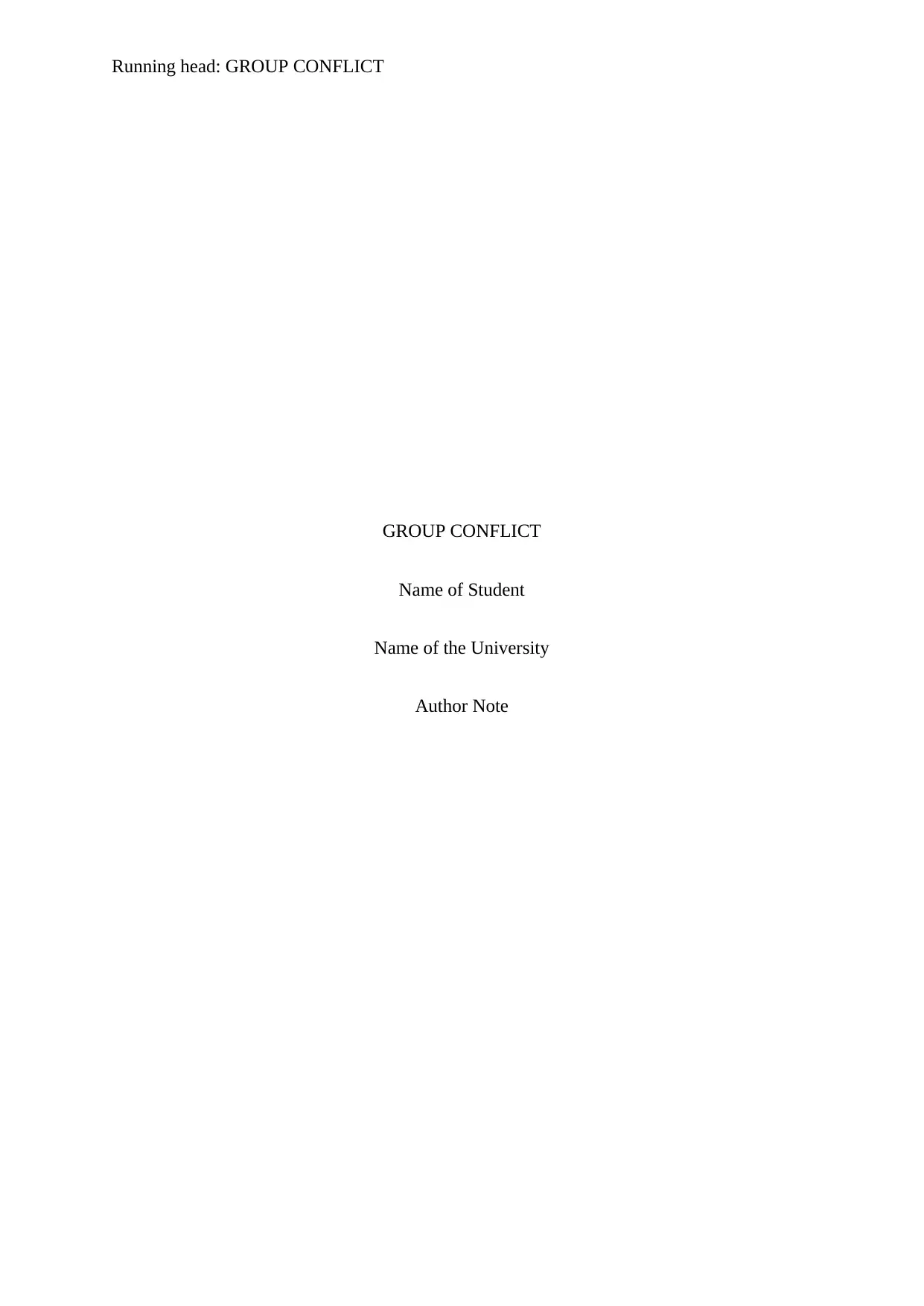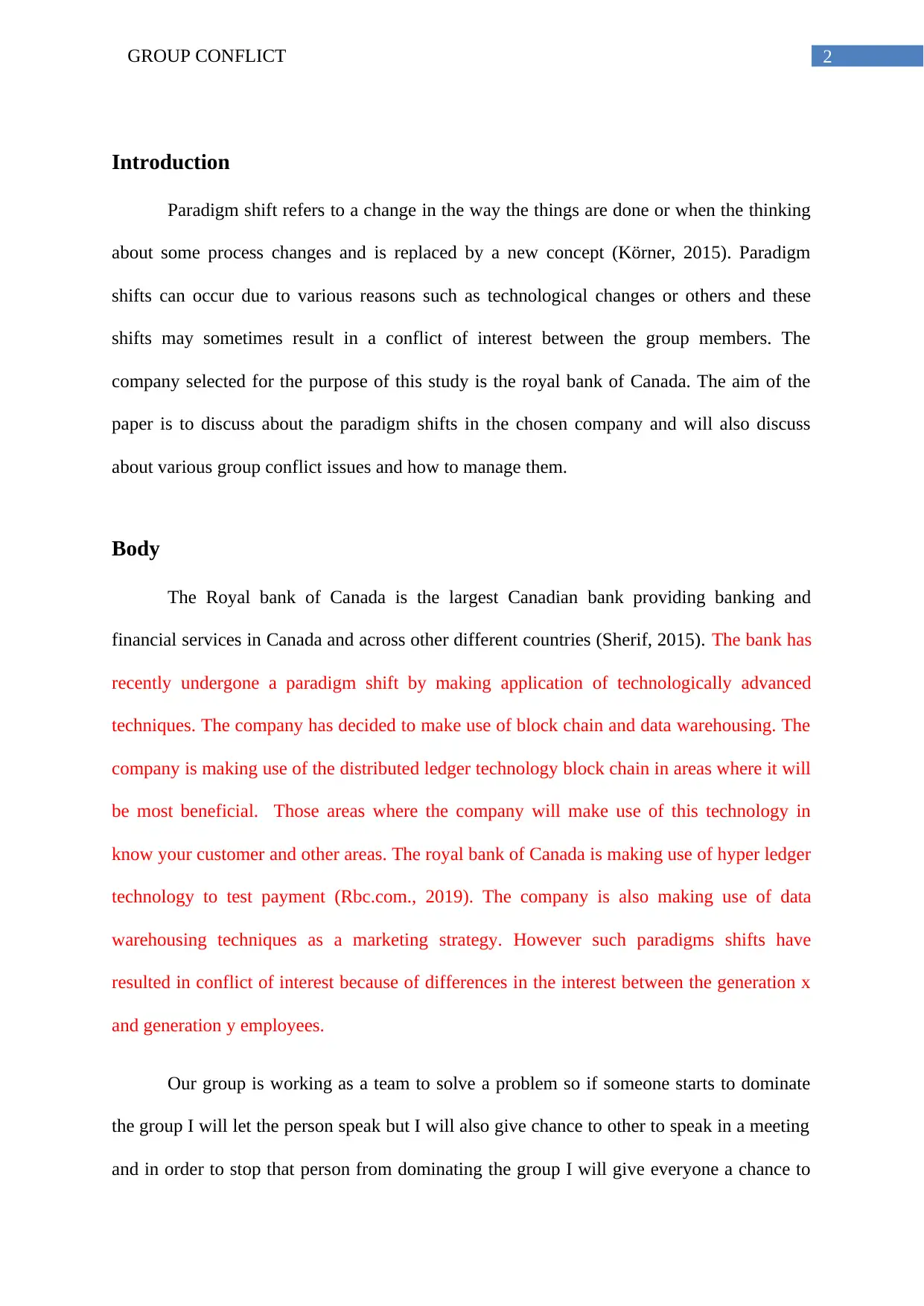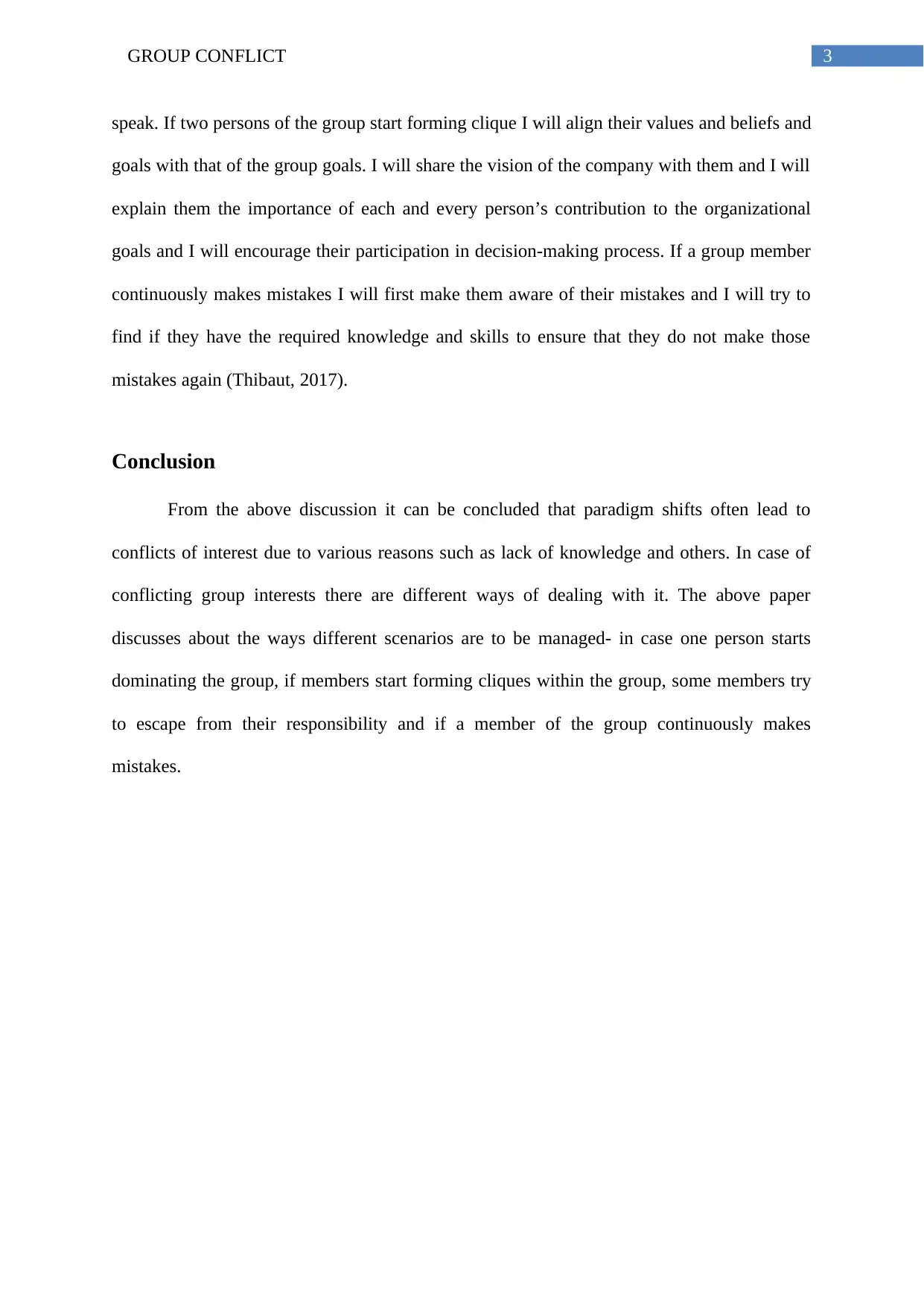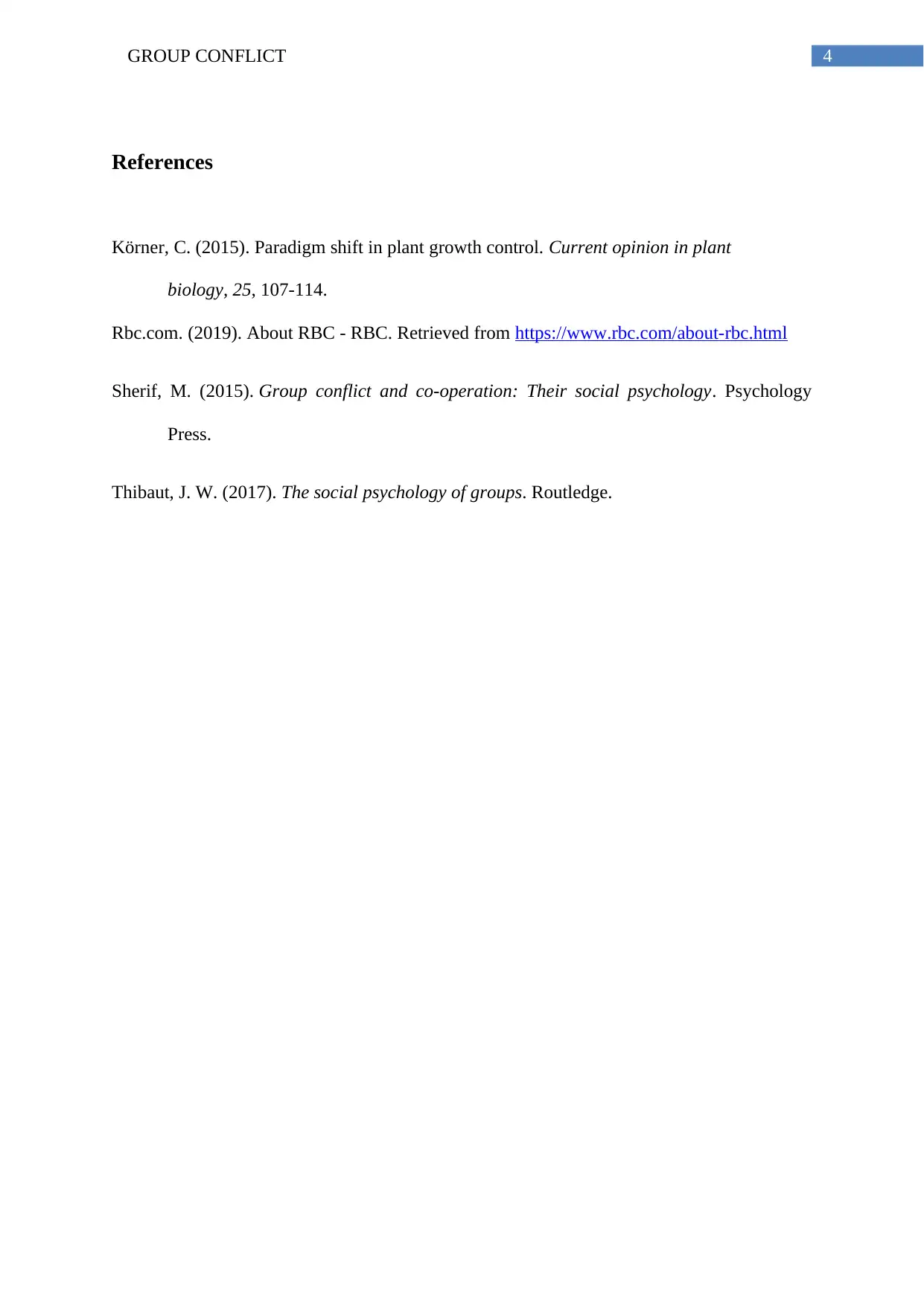Royal Bank of Canada: Paradigm Shifts and Managing Group Conflict
VerifiedAdded on 2022/12/29
|4
|633
|29
Essay
AI Summary
This essay examines the impact of paradigm shifts on group dynamics within organizations, focusing on the Royal Bank of Canada (RBC) as a case study. It discusses how technological advancements, such as blockchain and data warehousing, have led to conflicts of interest between different generations of employees (Generation X and Generation Y). The paper explores strategies for managing group conflict, including addressing dominating personalities, clique formation, avoidance of responsibility, and persistent mistakes. It emphasizes the importance of aligning individual values with organizational goals, promoting open communication, and providing necessary training to mitigate negative consequences of paradigm shifts. The conclusion underscores that proactive conflict management is essential for organizations undergoing significant transformations and students can find more solved assignments like this on Desklib.
1 out of 4





![[object Object]](/_next/static/media/star-bottom.7253800d.svg)